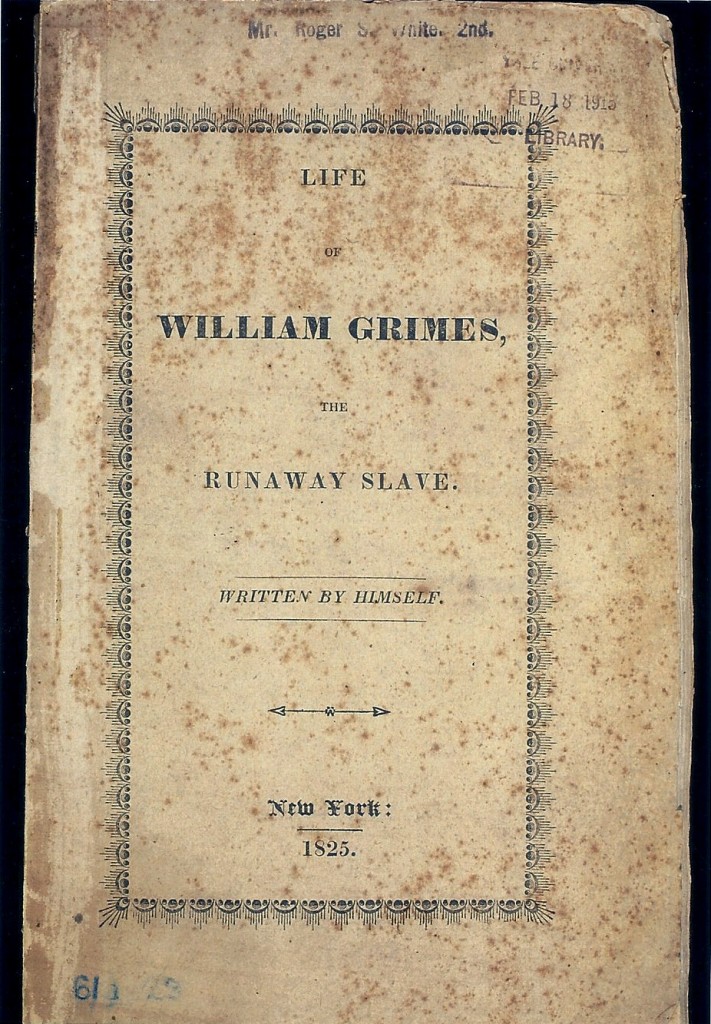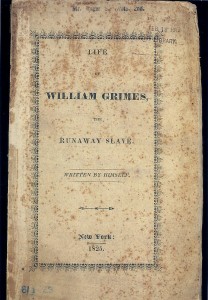I discovered my great, great, great, grandfather’s narrative, Life of William Grimes, the Runaway Slave, following clues my Aunt Katherine gave me about an ancestor’s connection to the Underground Railroad. No one in the family knew that a relative had written his life story. It would take me years corroborate his words and to link William Grimes to my family’s linage, but I, like his example, persevered.
The language in his book astonished me. Unrelenting misery plagued his life leaving him a profoundly embittered man. Never before had I imagined the depth of the slaves’ sufferings until I read this man’s story. The slave system that William Grimes described was far more cutthroat than any I could have imagined. He was ten years old when he was sold away from the arms of his grieving mother to a far off plantation. He grew up like a wild weed, friendless and motherless, with apparently no surrogate slave family or loved one to embrace him, no one even to look after him, as Fiddler in Alex Haley’s Roots had cared for the boy Kunta. Defenseless, he was repeatedly forced outside the house servants’ circle by those obliged to look out first for their own interest. I was numb.
In my quest to discover everything I could about this man, I also learned just how pioneering his narrative is. Actually, it is the first fugitive slave narrative in American history. Some historians say he unwittingly initiated a new genre of American Literature—The Slave Narrative, yet he remains essentially unknown today.
The story of William Grimes was my birthright and having recovered it for my family has been the greatest gift. I cannot imagine life without his legacy. I am empowered in ways I never knew I could be. The story of who we are—past and present—is not only central to our individual survival, but to our collective understanding and appreciation of each other.









Comments are closed.